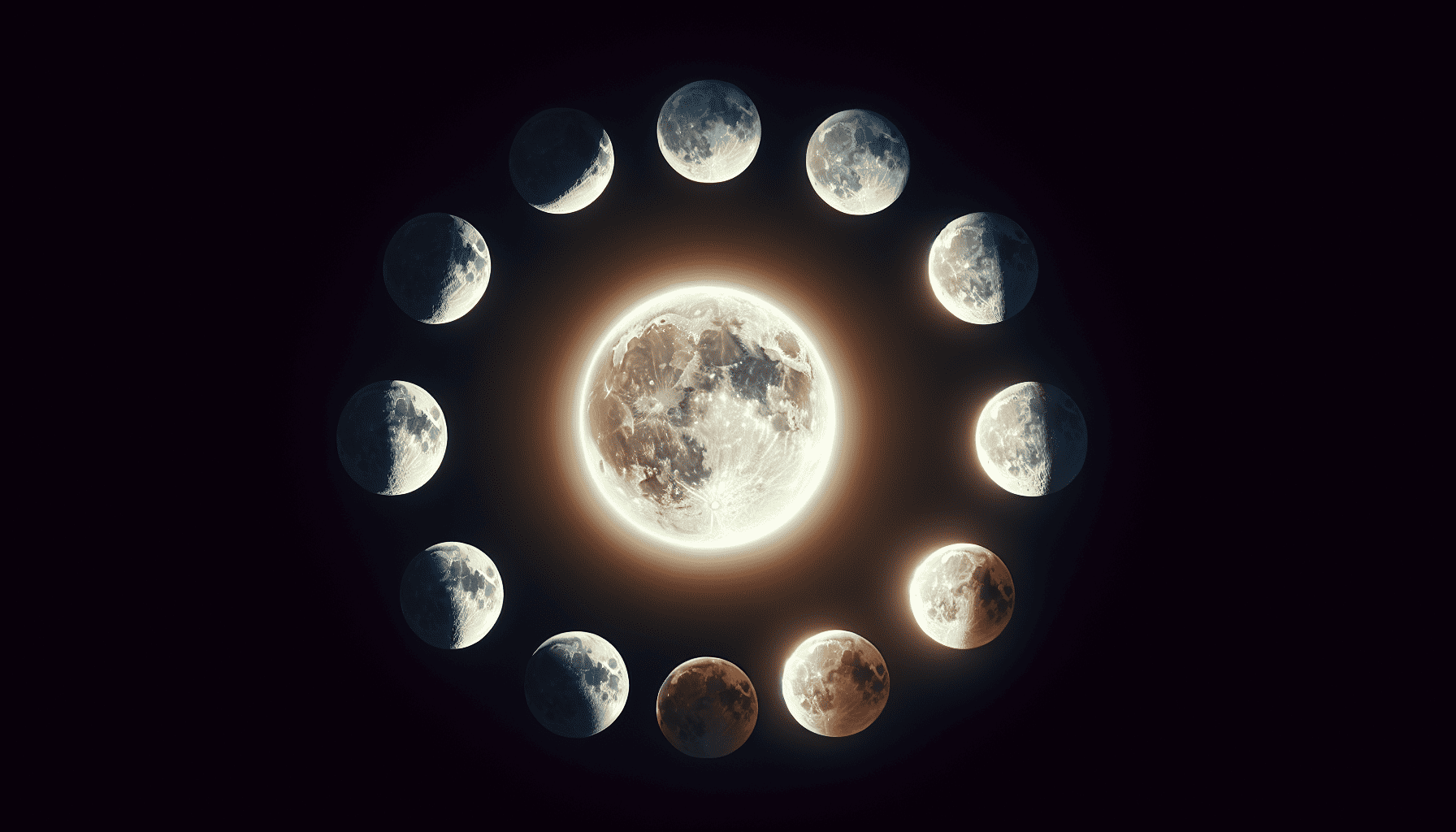The moon has long held a place of fascination and mystery in human history, deeply intertwined with cultural myths and scientific inquiry. Its phases, or lunar cycles, have been thought to influence various aspects of life on Earth, from tidal rhythms to planting schedules. Among the most intriguing of these alleged influences is the effect of lunar cycles on human mood and behavior.
Understanding Lunar Cycles
A lunar cycle, lasting about 29.5 days, involves several distinct phases: new moon, waxing crescent, first quarter, waxing gibbous, full moon, waning gibbous, last quarter, and waning crescent. Each phase is characterized by the amount of the moon illuminated by the sun. Historical and cultural narratives have often associated these phases with changes in emotional and psychological states, a belief that persists into modern times.
The Connection Between Lunar Cycles and Mood
The fascination with how the lunar cycle might affect human emotions stems partly from anecdotal observations. Many claim to experience heightened emotions, restless sleep, or surges of creativity during certain lunar phases, especially the full moon. While scientific studies have provided mixed results, the theories behind these phenomena are worth exploring.
-
Gravitational Pull and Electro-magnetism: Just as the moon’s gravitational pull affects the tides, some hypothesize that it might also impact the aqueous balance of the human body, potentially influencing mood. Although the gravitational effect on the body is minimal, its symbolic or psychological impact could be more significant.
-
Circadian Rhythms: The moonlight during different phases could affect circadian rhythms, influencing sleep patterns and thereby impacting mood. Research has suggested that during a full moon, some people may experience shorter and less deep sleep, which could lead to irritability or discomfort.
-
Cultural Conditioning: Humans have long associated the full moon with madness (hence the term "lunacy") or heightened emotional experiences. This cultural belief itself can have a powerful impact on how we perceive and report our moods. When we expect to feel differently during a full moon, we might be more attuned to or even unwittingly amplify minor emotional fluctuations.
Harnessing Lunar Energy for Emotional Well-being
Whether or not the moon's phases have a direct effect on human emotions, the practice of aligning with lunar cycles can be a powerful tool for self-reflection and emotional management. Here are some ways to harness this energy for emotional well-being:
-
New Moon: Symbolizing new beginnings, this is an excellent time to set intentions or embark on new projects. Use this phase for reflection and goal-setting, helping you to focus on areas of personal growth or change.
-
Full Moon: Often associated with culmination and heightened energy, the full moon can be a time to release negative emotions or habits. Engage in rituals such as journaling or meditation to let go of what no longer serves you, using the full moon’s energy as a catalyst for emotional cleansing.
-
Waning Moon: As the moon moves from full to new, it symbolizes shedding and introspection. This is a favorable period to reflect on your progress and make necessary adjustments to your emotional health strategies.
Personalizing Your Lunar Connection
It's essential to remember that the impact of lunar cycles is highly individual. Paying attention to your patterns during the different phases can help you understand if and how lunar cycles influence your emotions. Keeping a lunar journal where you track your mood and energy levels in relation to the moon’s phases can provide valuable insights into your unique connection with lunar rhythms.
In conclusion, whether you view the moon’s impact as symbolic or scientific, acknowledging and engaging with lunar cycles can deepen your self-awareness and enhance emotional well-being. By tuning into the natural rhythms of the moon, you may find a novel framework for understanding and nurturing your emotional landscape.
